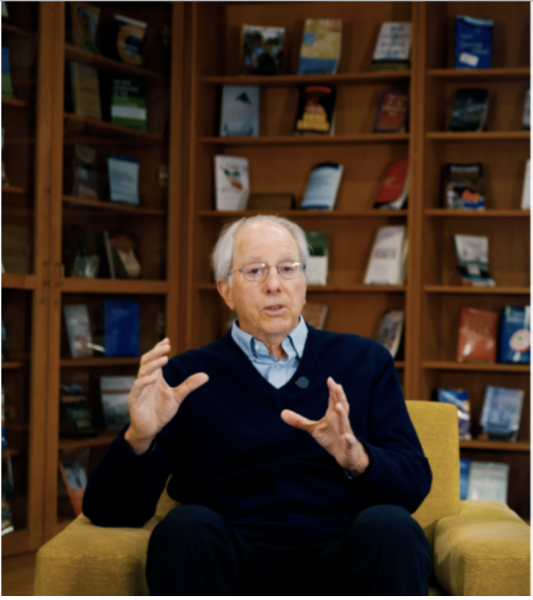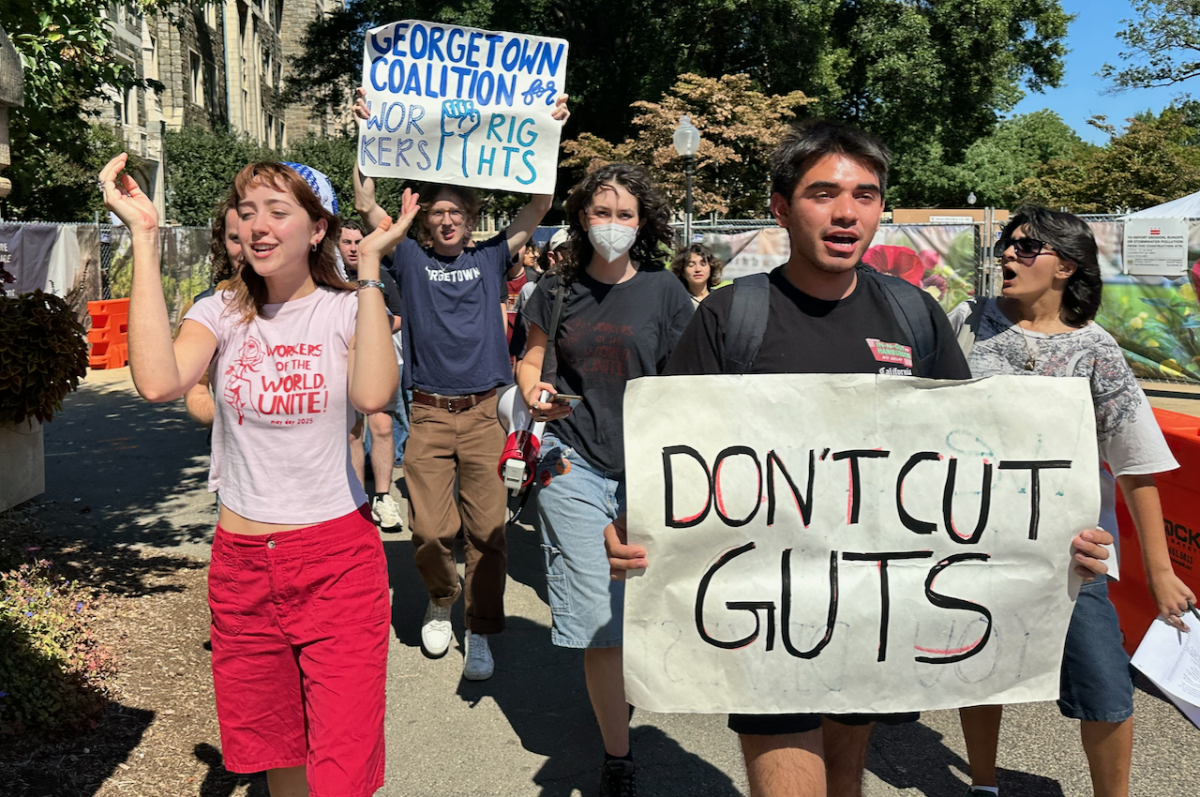An international relations professor in the Georgetown University School of Foreign Service (SFS) marked the publication of his newest book on contemporary geopolitics at an event hosted by the Center for Jewish Civilization, an interdisciplinary program in the SFS, March 10.
Dennis Ross, a distinguished professor of the practice, published “Statecraft 2.0: What America Needs to Lead in a Multipolar World” as an update to his 2006 book “Statecraft: And How to Restore America’s Standing in the World.” Ross has played a role in U.S. foreign policy for decades, having served as the Department of State’s director of policy planning under former President George H.W. Bush, special Middle East coordinator under former President Bill Clinton and a special assistant to former President Barack Obama.
Ross said that in contrast to the unipolar system led by the United States he described in his first book, global politics has evolved amid the rise of China and other global competitors.

“We face real competitors internationally and regionally, and we don’t any longer have a consensus about what our role in the world should be,” Ross said at the event. “So it was in light of that that I wrote a book that uses statecraft as an approach, a concept of how you organize and approach foreign policy and national security, but I wrote in a totally different context.”
Ross added that shifts in geopolitical dynamics and the domestic political environment compelled him to reassess U.S. foreign policy.
“This led me to do some things that were quite different from the first book,” Ross said. “One was to think about American traditions in foreign policy. The other was to say we’ve gotten away with, historically, not doing what is essential to good statecraft.”
“Statecraft 2.0” explores how the United States failed to fully align its objectives and means despite maintaining a unipolar position. Ross said these failures allowed world leaders to further challenge the United States, such as Russian President Vladimir Putin’s invasion of Georgia in 2008 and annexation of Crimea in 2014.
Ross said this strategy is no longer feasible for the United States in today’s multipolar landscape.
“We are not going to be able to sustain a leading role in the world, which I continue to believe is necessary, unless we are in a position to marry our objectives and means,” Ross said.
Ross said public unity and trust in U.S. foreign policy peaked in the wake of the 9/11 terrorist attacks.
“You go back to 9/11, and there you have this extraordinary degree of unity, and for a couple of years, you kind of lose checks and balances as well,” Ross said. “The Congress is willing to give a blank check to the administration.”
Ross said the 2003 Iraq War, which saw U.S. forces invade Iraq to overthrow dictator Saddam Hussein, spurred a downward spiral toward the present polarization in the United States.
“The costs are so high, the benefits are not clear and the expectations that were created are not at all fulfilled — where were the weapons of mass destruction?” Ross said. “All this really profoundly shakes the consensus.”
Ross said the Great Recession, which began in 2007, compounded the public’s distrust in the U.S. government.
“The financial meltdown of 2008 then raises basic questions about expertise, and the elite and their views,” Ross said. “So I look at this as being a time when a lot of the source of domestic consensus is weakened.”
Ava Schneiberg (CAS ’27), a student in Ross’ class who received an advance copy of the book, said she found the work essential to her study of statecraft and U.S. foreign policy.
“‘Statecraft 2.0’ offers an accessible and straight-to-the-point analysis of high stakes U.S. foreign policy interventions, processes that seem almost mythical in how they play out,” Schneiberg told The Hoya. “As someone hoping to serve in the U.S. foreign policymaking field, I hope to carry the lessons from Ross’s book with me into my career.”
The event concluded with a question and answer session. Ross said the current administration under President Donald Trump defines U.S. interests differently than previous leaders, and concluded the event with his thoughts on the future of the United States’ legitimacy as a world leader.
“The legitimacy is going to be shaken by this administration because this administration operates exclusively on the question of interest, not values,” Ross said. “It’s pretty hard to say that the Trump administration stands for anything other than what’s going to be good for America.”
“Traditionally, we felt because of who we are, because of the nature of our values that are more universal, that when we see freedom growing, when we see tolerance growing, when we see certain basic norms respected internationally, that was good for America. Right now, this administration defines what’s good for America differently, so it will be difficult,” Ross said.



















